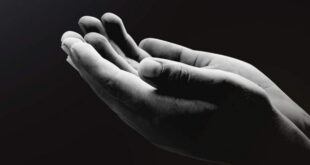Many Muslims – myself included — often forget about the spirit of Islam in matters of law and worship. For instance, do we not recite 114 times in the Quran, “In the name of God, Most Gracious, Most Merciful” – should this not, then, be the spirit with which all our actions and deeds are performed?
Is our worship for anything other than to get closer to Allah subhanahu wa ta’ala (exalted is He) – should this not, then, be the focus with which we perform every prayer? Is the essence of fasting not sacrifice for the sake of Allah (subhanahu wa ta’ala) – should we not, then, abandon extravagance when it comes to Ramadan?
This preamble brings me to something of which we may be losing sight: the spirit of modesty. Just as it is possible to fulfil the obligation of prayer with a few movements of bowing and a few utterances of Arabic, it is possible to fulfil the obligation of modesty with a few pieces of cloth. But while Islam does define a dress code (though not a “uniform,” as Allah’s messenger (sallallaahu ‘alayhi wa sallam) wore the clothes of his people), there are trends which make me wonder whether people are relegating modesty to tick-boxes of covered body-parts. If this is indeed the case, it may explain why some Muslim men do not see this tremendous virtue as one to reflect upon and develop – this is while the Quran in fact addresses men first and foremost with the command of modesty:
“Tell the believing men to reduce [some] of their vision and guard their private parts. That is purer for them. Indeed, Allah is Acquainted with what they do. And tell the believing women to reduce [some] of their vision and guard their private parts and not expose their adornment except that which [necessarily] appears thereof.” [Quran, 24:30-31]
It seems that some people get distracted by the additional commands regarding dress directed towards women, distracted enough to forget about one’s own state before Allah, to forget about bringing this virtue to permeate one’s life. (And if anybody is confused as to why Allah, the Wise, specified a higher degree of covering for women, then I call upon you to reflect – without prejudice – on concepts of beauty and human nature, but this is a separate discussion for which enough space on bookshelves is already devoted.) It is also a travesty that often well-intentioned Muslim speakers, when speaking about this, often divert their focus to the female gender or immediately bring up the hijab, not knowing that the male members of the audience flick a switch and coast until the topic of modesty is over.
In this short reminder, I cannot impart all there is to say on the realities of modesty, shyness, hayaa – this is something which requires reflection on the Quran, reflection on the shama’il (character traits) of the Prophet (sallallaahu ‘alayhi wa sallam), reflection on the righteous (Uthman ibn Affan radi Allahu ‘anhu (may God be pleased with him) – yes, a man! – is celebrated in particular for his hayaa), and indeed reflection on the society around us.
Most importantly, I want to call towards self-reflection regardless of whether you feel you already apply the outward requirement of modesty or not, regardless of whether you are male or female.
How can we manifest it in speaking with our elders, with our friends, with our colleagues? In the websites we visit, in what we gaze at, in what we hear, and in what we allow our mind to dwell upon or desire?
How can we balance it with looking presentable and dignified? How can we apply it when alone, in our self-esteem, in our intentions, and before Allah?
May reflection on and purification of our inward and outward states (tazkiya) be the means to attaining success from Allah on that Day,
“The Day when there will not benefit [anyone] wealth or children, But only one who comes to Allah with a sound heart.” [Quran, 26:88-89]
 navedz.com a muslim's Quest for the truth
navedz.com a muslim's Quest for the truth









